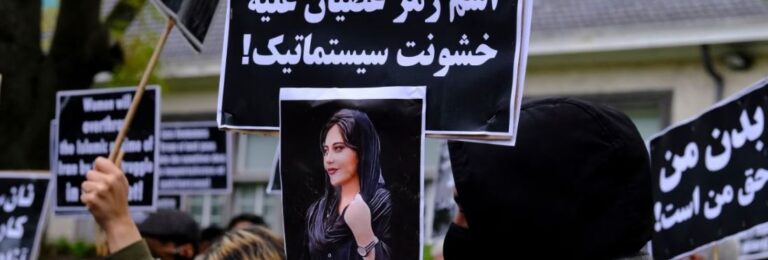Iran’s ‘revolutionary courts’ play a major role in breaching human rights
The Iranian government has attempted to brutally suppress the widespread protests sparked by the death of 22-year-old Mahsa Amini in police custody in September 2022.
Central to Iran’s response have been the country’s “revolutionary courts”. They have conducted heavily-criticised trials resulting in at least four executions, while over 100 protesters are in considerable danger of imminent execution.
Criminal trials in these courts often occur behind closed doors presided over by clerics, with none of the standard guarantees of criminal procedure such as allowing time and access to lawyers to prepare a defence.
Submissions to the United Nations from Iranian civil society organisations report that lawyers are routinely denied access to clients, and that coerced confessions, often obtained by torture, are used as evidence.
Tara Sepehri Far, senior Iran researcher at Human Rights Watch, describes the trials as “a total travesty of justice”.
Criminal trials that are unfair by international standards have been a feature of the Iranian legal system since the 1979 Islamic revolution.
The courts were established to try opponents of the regime who face ill-defined national security charges that carry the death penalty. Such vague charges include waging war against God (“Moharebeh”), corruption on Earth (“Ifsad fel Arz”), and armed rebellion (“baghi”).
Read the article by Simon Rice, Professor of Law and the Kim Santow Chair of Law and Social Justice at Sydney Law School at the University of Sydney.

